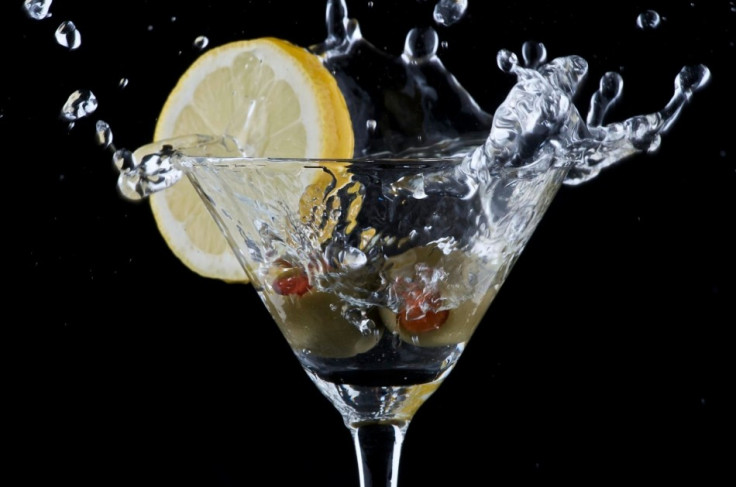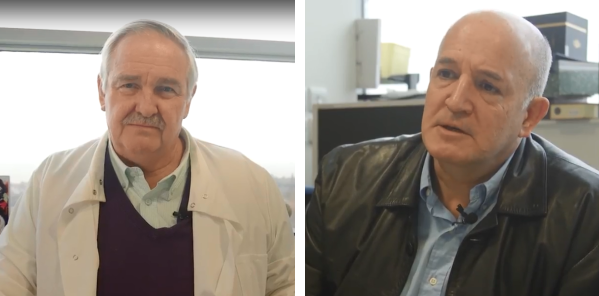'Western societies will give up alcohol,' says top drugs scientist
KEY POINTS
- Professor David Nutt is pioneering a healthy alternative to alcohol.
- "Alcosynth" mimics alcohol without harming people or causing hangovers.
- The venture, Alcarelle, is hoping to raise £7m to bring the product to market.
Alcohol could practically disappear from Western countries within a generation, according to a leading scientist pioneering a safer alternative.
Former government drugs adviser Professor David Nutt believes that "alcosynth" molecules, which mimic the pleasurable effects of alcohol but are not toxic, have the power to transform public health around the world.
Much of the attention surrounding his venture, Alcarelle, has focused on the promise of low-calorie and hangover-free drinking sessions, but Nutt told IBTimes UK that the greatest benefits were far more profound.
"In another 10 or 20 years, Western societies won't drink alcohol except on rare occasions," he said.
"Alcosynth will become the preferred drink, in the same way that I can see – almost within a decade now in the Western world – tobacco and cigarettes will disappear as they're replaced by electronic cigarettes."
Alcohol was responsible for 3.3 million deaths worldwide in 2012 – more than half the number of smokers who perished as a result of their habit, according to the World Health Organisation's latest figures.
People like booze, indeed, human socialisation has been built around alcohol consumption. But it is toxic. Regulators would not let it near supermarket shelves or public houses in anything more than minuscule amounts if it were discovered today.
This is the dilemma for which alcosynth provides a bespoke solution: all the pleasurable, socially lubricating effects of alcohol mixed into a tasty drink that does not damage the liver, heart, blood vessels, brain or anything else, for that matter.
Alcarelle has identified a handful of synthetic substances that can be used as alcosynth, whittled down from a field of almost 100.
"Why should the only thing available to adults at a party be something that is bad for you?" managing director David Orren said. "It's just wrong, especially when science provides a wonderful alternative."

Alcohol-related harm – which burdens healthcare, policing and justice systems while wreaking havoc on productivity – costs the UK economy around £22bn ($29.3m) a year. In the US the figure is $220bn at a low estimate. That amounts to $1.90 for every unit of alcohol consumed.
"Hospital budgets are being squeezed but in the middle of it there's this really big lump that's all to do with alcohol that can't be squeezed unless you actually change it," said Orren.
Alcohol is often a greater financial burden on law enforcement than it is on health services, which is why governments should be interested in alcosynth's "plateau" feature, said the company. That feature sees drinkers reach a limit of drunkenness, beyond which further consumption is completely ineffectual.
The specific level of drunkenness at which the effects plateau varies from substance to substance. Nutt said that the current front-runner is equivalent to a couple of cocktails.
"It could well change culture," he added. "If there's less intoxication then there will be less violence on the street, less vomiting and less unpleasantness in our city centres.
"There are some people that want to get intoxicated so they can just fight or be 'out of it', but most people want to drink alcohol to enjoy the experience, though inevitably alcohol harms them."

Nutt and Orren will soon be pitching for the £7m Alcarelle needs to bring one of its top-secret compounds to market in the UK, EU, US or Canada. They have also been warmly received by the Chinese government, which is desperate to reverse the damage alcohol is inflicting on the workforce.
Closer to home, Alcarelle products will be targeted at 18-25-year-olds, who are more health-conscious and drink less than older adults. Alcosynth is not designed with recovering alcoholics in mind but may prevent future generations developing alcohol-dependence problems.
A Britain without large-scale problem drinking might seem like science fiction but few would have imagined the e-cigarette taking off. A recent BMJ paper claimed that e-cigarette use among US smokers had risen from 1.4% in 2010 to 30% in 2014.
Giving up smoking or alcohol is something many people are often not willing or able to do. Genuine alternatives, which eliminate or greatly reduce risk, are a natural development.
"Alcohol kills more than malaria, meningitis, tuberculosis and dengue fever put together," said Nutt.
"Wouldn't it be fantastic if we could replace alcohol with something that led to almost no deaths? That would be one of the greatest public health developments in the history of the world."





















